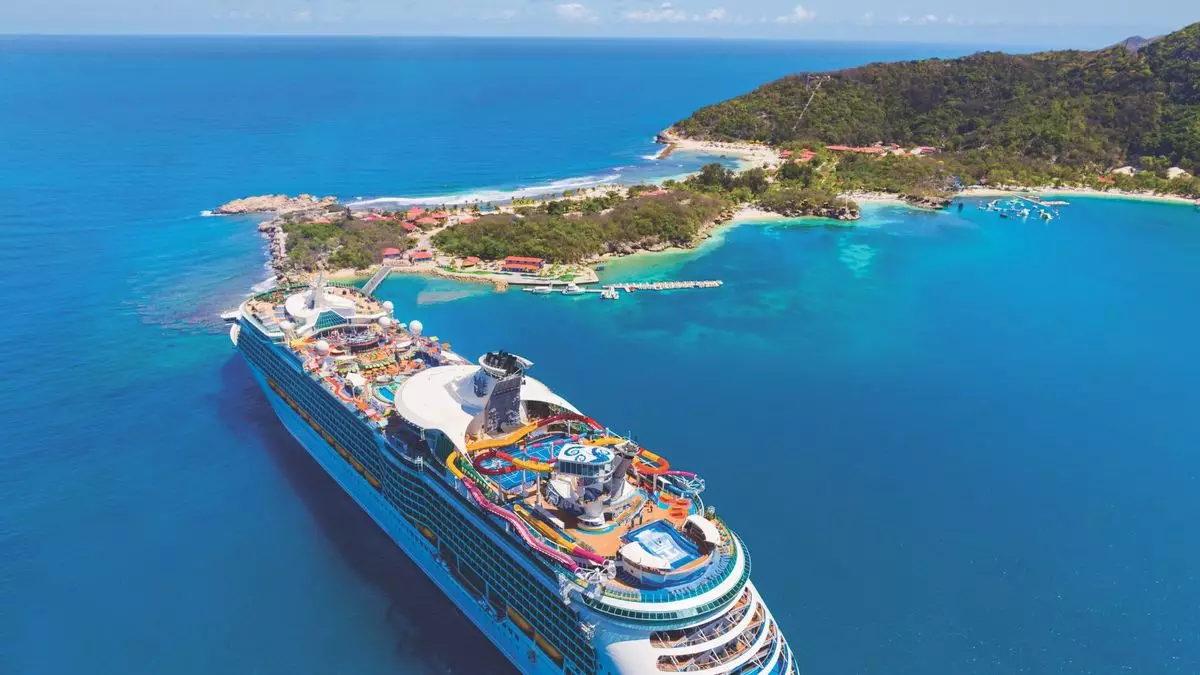After a protracted absence of nearly seven months, Royal Caribbean International is set to resume its cruises to Labadee, a private resort destination in Haiti. The Adventure of the Seas is expected to lead this return, followed closely by Symphony of the Seas, the latter of which adjusted its itinerary due to Hurricane Milton. This return marks a significant turning point for Royal Caribbean, which halted operations to Labadee in March following a surge in violence and political instability within Haiti.
The initial decision to suspend services was not taken lightly; it was prompted by escalating gang attacks, prison breaks, and overall unrest that led not only Royal Caribbean but also the U.S. and the United Nations to withdraw personnel from the country. The situation created palpable tension within the travel industry, as safety became a crucial factor for tourists considering trips to the Caribbean nation.
The return to Labadee has not been without controversy. Public sentiment has been a mixed bag, as social media played a pivotal role in spreading the word about Royal’s return after a guest noticed Labadee featured in their itinerary. However, the renewed interest in this destination clashes with ongoing concerns regarding safety. The latest reports suggest that violence in the broader region has intensified, with the killing of at least 70 individuals by gang members in Pont-Sonde, a location disturbingly close to the cruise destination.
Royal Caribbean has claimed that Labadee is well-protected, citing a fenced-off resort area designed to ensure the safety of its guests. Yet, the eerie juxtaposition of a secure tourist area against the backdrop of rampant violence elsewhere in the country raises questions about the effectiveness of such measures. A spokesperson from the cruise line emphasized that their Global Security and Intelligence Team is actively monitoring the evolving situation.
The ongoing unrest places Royal Caribbean in a precarious position as it seeks to balance operational interests with the safety and security of its guests. The U.S. State Department’s advisory, which firmly advises against travel to Haiti, complicates the narrative. Royal Caribbean’s decision to resume operations could be viewed as a gamble—one that weighs potential financial benefits against the real risks posed to travelers and crew.
As other ships, such as Explorer of the Seas and Freedom of the Seas, are scheduled to follow suit, the question remains: Will Royal Caribbean’s return to Labadee prove to be a sustainable choice, or will circumstances compel another withdrawal? The unfolding situation demands vigilance, as the cruise line navigates a minefield of operational challenges and safety dilemmas.
The unfolding events in Haiti illustrate broader implications for cruise tourism in the region. Royal Caribbean’s return can be seen both as a hopeful sign for economic recovery and a cautionary tale about the volatile climate affecting travel decisions. As the cruise industry looks to rebound from the pandemic, destinations like Labadee will serve as test cases to determine how safety concerns, political stability, and community engagement influence the future of tourism. Will Royal Caribbean be able to build a lasting, secure presence in Labadee, or will it face inevitable setbacks as the region continues to grapple with its complex challenges? Only time will tell.


Napsat komentář